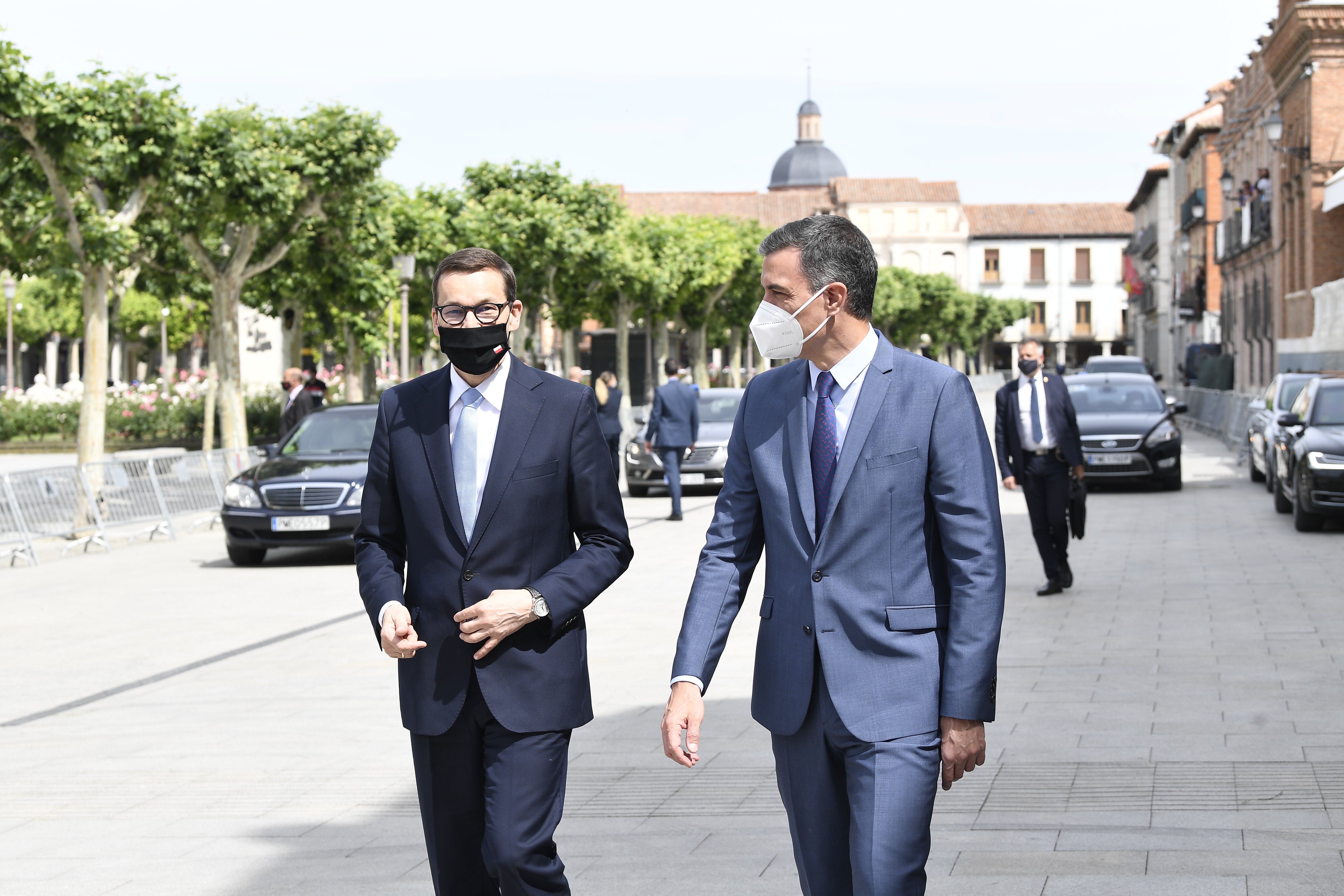The storm that's blown up has been massive, not only from the right and extreme right but also from from old Socialist leaders and the party's regional barons. But Pedro Sánchez seems determined to grant pardons to the pro-independence political prisoners. He reiterated this today in Alcalá de Henares, the town near Madrid where he held a summit with the current Polish government. From the auditorium of the city's university, the Spanish prime minister stated that it's time to "start again" and to "go from a bad past to a better future." And he assumed the political cost that he would have to bear. No date was given for the application of the clemency measure, although the likely period seems to be late June or early July. He also hoped to meet with Catalan president Pere Aragonès in the Moncloa government palace before reactivating the Spain-Catalonia dialogue table.
Asked precisely about the hypothetical political cost of pardoning the pro-independence leaders, the president of the Spanish government retorted: "Helping to solve problems does not represent a cost. The cost to the country would be to leave the issue entrenched." That said, he went right back to his investiture speech of 18 months ago, when he spoke of "de-judicialization" of the issue and a "resumption of politics." This means, for Sánchez, "returning to the path of dialogue, negotiation and pact within the margins allowed by the Constitution."
In this regard, the Socialist leader argued that it is necessary to "start again and return to the point where both parties stopped listening and understand the arguments and reasons of the other party." And that resolving a crisis as long-lasting as this will not be "immediate", but will requires "patience, empathy, negotiation and generosity". Therefore, the decision he makes about the pardons will be "conscious" and "will allow us to move from a bad past to a better future." He again referred to concepts such as "concord, coexistence, conciliation and cohesion."
Beyond preparing the ground, the PM did not want to speak of timing, although it could be in late June or early July. He stressed that what is involves are the individual files of each of the convicted Catalan leaders and the cases "must be built and argued well" from a legal point of view. That is why he demanded "to let the justice ministry experts work" so that they can present their proposal "when appropriate".
Nor did he reveal any timeframe for the reform of the offence of sedition in the Spanish penal code, which could arrive very soon, as El País claimed today. The Socialist leader limited himself to saying that, when this law was first applied to the Catalan independence leaders, "Spain learned a lesson" because "we saw how far away our penal code was, in these offences, from other penal codes in more advanced countries."
With regard to the dialogue between the Spanish state and the Generalitat of Catalonia, Pedro Sánchez set, as a first milestone, a protocol meeting with the new Catalan president, Pere Aragonès, at the Moncloa, which has not yet been scheduled. "Then there will be time to meet not once, but many times," he concluded.
Sánchez responds to Morocco
Meanwhile, the Spanish government has also responded to the Moroccan leadership, in a diplomatic tussle that continues. "It is not acceptable for the Moroccan government to call for borders to be attacked by thousands of migrants due to foreign policy disagreements and discrepancies," the PM replied. He "rejected" the statements of the Moroccan foreign minister and recalled that the relationship between the two countries "must be based on respect and trust."
Sánchez appeared at the press conference with Poland's right-wing populist prime minister, Mateus Morawiecki. The Polish leader received Vox leader Santiago Abascal last week in Warsaw. Today Morawiecki gave the Spanish government his support over the migration conflict in Ceuta.

